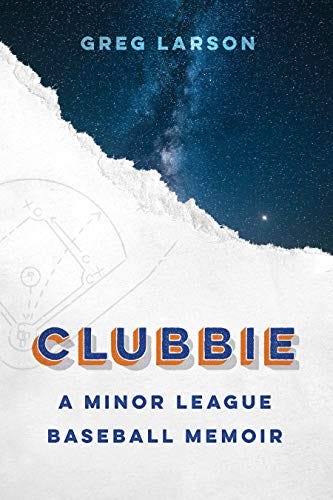This is Part 2 of my Four-Part Miniseries on how to PLAN, WRITE, EDIT, and PUBLISH your creative work.
My co-host for the series is Greg Larson. Greg has written and edited more than 80 books.
In Part 1 we reviewed how to PLAN your book.
Today we’re going to review how to WRITE your book.
Episode Transcript
Ben Guest:
Hi everyone, this is Ben Guest and welcome to part two of my four part mini-series on how to plan, write, edit, and publish your book. My co-host for this mini series is Greg Larson. Greg wrote a fantastic memoir called Clubbie. He's ghost written and edited over 80 books. In this episode, we talk the writing process and start with how writing is similar to standup comedy.
Greg Larson:
There's nothing more brutal than in the moment feedback of a standup comedy audience. That's a really great gift, because as an author, we don't have that. We're just inside our own head. I think that's why a lot of writing can turn masturbatory, where you're not thinking about what's the audience want? What's going to keep them reading the next sentence? As a standup comic, that's right there in your face, in a very painful way. It's an immediate stimulus response condition.
Ben Guest:
You know if it's working, immediately?
Greg Larson:
Yes. With writing, you don't really know, you just have to... I don't know what... You have to trust it. At least in the first draft.
Ben Guest:
I do this thing, sometimes. If I can, where if I'm in the same physical space with a good friend, family member, a trusted reader, I'll print out a chapter, a section, a scene. And I'll say, "Can you read this and give me feedback?" My parents were in town the other day. I did this with my dad and he said, "Sure." It's just maybe four pages. He said, "Sure." He left to go to the dining room table, sit there, and mark it up. And I said, "No. Can you sit right here and read it?" I kind of want to watch you in my periphery while you read it. It's as close as you can come to something like film making, when you watch it with an audience or stand up in front of a crowd, where you can just tell from the body language, "This is working. This is not working".
Greg Larson:
Yeah. What was his response?
Ben Guest:
His response to that was just like, "Okay", at this point with enough creative projects, he's like, "I'm not going to question the process." It was fine. It's better with my mom because my mom will kind of make... She'll laugh or she'll smile or she'll frown and I can see, "Okay, wait. What sentence are you on? Why did you frown right there?" You don't really get to do that as a writer. If you do, you can't do it too often because people just get sick of you.
Greg Larson:
Yeah. I mean, you could be the best writer in the world and with that kind of microscope on your reading process, it eventually becomes like, "Whoa, there's a lot of pressure to read".
Ben Guest:
Right. Also, I think you touched on something earlier, which is... So I used to be a high school, English teacher. I used to tell people, "Standup", I never did stand up, "But standup and teaching are similar in that you know right away if it's working. That you can't fake laughter and you can't fake an engaged group of students." There is that component. There's also the component when we write of... sometimes we want the reader to have to figure some stuff out. Sometimes we don't want there necessarily to be clarity. That goes back to your point of your compatriot, who's writing something and then sort of explaining exactly what that piece of dialogue meant. Whereas if we're really doing our job, we should be laying the bricks down where the audience can make the next step.
Greg Larson:
Yeah. There are times where you do need to interject. That's a hard one, man. I don't know... I don't know how you know... It's a gut feeling thing, I think. How many times do I interject and tell them what the meaning is and how do I do it? I know what I do is in the first draft I will over explain so that I can shave back from there. I know that I do that, but to know where and when to shave, is a gut thing.
Ben Guest:
Yeah. It's so hard. I think, in general, my measuring ratio is nine times out of 10... you don't need to explain it. One time out of 10, you need to. It's tough to know.
Greg Larson:
Yeah. I like that though. That sounds right to-
Ben Guest:
It's so easy to over explain. That's the number one thing, when I go back and edit my own work, the first thing that goes is like, "Why are you explaining what this means for show, don't tell"?
Greg Larson:
One of my old professors, John McManus, he had this rule that he would tell us. He'd say, "With the scene direction specifically", he's like, "Only leave it in there if it does two jobs. If the one job is to be a visual stimulation of some kind, and that's it, then delete it. But if the job is to be okay, show us a visual, but that visual also tells us something about the character. "Oh", he said, as he crossed his shoes, which were mismatched. It's like, "Okay, that says something about that character. That they're a little bit haphazard. They're not thinking things through, that kind of thing." That is a rule that I try to keep in my mind.
Ben Guest:
I love that. I think that leads us right into where I want to go next, which is... So you shared three different versions... three different drafts of just a couple paragraphs from Clubbie. I kind of marked it up. I have a couple thoughts that I kind of want to dive into which is... What I'll do actually, is I'll read part of each version because this is a little bit different, not different, bad or different, good, but just different than the process that we're describing. What I'm seeing here is the first version is just very much the skeleton, the bare bones, the framework. I'm doing this. I need to do this, this and this. Then the second version is really adding lots of description and detail. Then the third version is pairing it back just a little bit. Adding just the correct dialogue. Adding some humor and kind of turning that literary dial just a little bit. Does that make sense?
Greg Larson:
I think that's exactly right.
Ben Guest:
Let me read one paragraph from each of the three versions. This is just to kind of set the scene. This is when you're first getting to Aberdeen, is that correct?
Greg Larson:
Yep. That's right. I'm basically, I'm walking into the equipment closet with my new boss. I am being shown a world that is going to be my new home for the next two years. I have no idea what I'm getting myself into.
Ben Guest:
Right. Of course, you're now showing us, the reader, this new world. You want to convey, "I have no idea what I'm getting into." Going back to show, don't tell... The last thing in the world you want to do is say, "I have no idea what I'm getting into." You want to convey that feeling just through this scene?
Greg Larson:
Yep. That it's exactly right.
Ben Guest:
So version one…
Jason throws the Aberdeen hat on your head. Just one of the caps left over from the year before. Blue, BP cap with cursive, A. Nice cap. Stretch fit. Okay, that's version one. Then version two of that exact same scene. He pulled out a blue stretch, fit cap with orange trim on the bill and an orange cursive capital A, for Aberdeen, on the crown, rather than the IronBird's logo. He slapped it onto my head so that the bill was halfway over my eyes and I could only see his feet. I left it like that.
Okay. Right there, I think it's already miles ahead of version one, right?
Greg Larson:
Yeah. Version one, I was just trying to get the idea... I wasn't even writing. I was just saying what was going to happen.
Ben Guest:
It's sort of somewhere between writing an outline... Is that fair?
Greg Larson:
A hundred percent.
Ben Guest:
Before we get to version three, when you're doing version one, just that sort of all half outline, half writing, how long does that take you? Or is it just head down? There are a bunch of typos and so forth. Is it just head down writing sprint? What does that look like for you?
Greg Larson:
For this book, that's what that looked like. It was 2000 words a day and I was just banging it out. If a piece of dialogue or a specific visual came to me, I would put it in. Literally, the first paragraph of the section I sent you said, "We need to know what you look like early on here so we can compare it to what you look like mid-season?" That's just a note to myself. I don't write like that anymore, usually. That is just me cranking shit out as fast as I can to get to the stuff that's actually prose.
Ben Guest:
Why don't you write like that anymore?
Greg Larson:
It was fast. It's okay for a first draft to be sloppy, but it was so sloppy that some of the ghosts from the early skeleton would get stuck in the later versions. That problem is the reason why I'm writing my new book, by hand. I can't just bang that shit out. Every choice is more costly... physiologically.
Ben Guest:
That's so interesting. You're writing the new novel, by hand... Is that translating into a more finished piece of prose in the rough draft?
Greg Larson:
Yeah. I'm writing prose two pages a day. It might be 500 words a day. I don't know. This is the most recently filled notebook for my current novel that I'm writing. This is all prose. This is all prose. I know that I can go into the back final pages... On the last page I have a header that says, "Notes." This is just where I have ideas for things. What does Dana in my summer look like? Use my ex-girlfriend's relationship as a model. First, new and real love, so it feels permanent. Those kinds of notes. That's not prose. Those are just notes to myself. Before, I would've put them all together like I did with Clubbie. Here, they're sectioned off to the back so that I can refer back to it and say, "Oh yeah, I still have that here. I'm going to use it as a reference point for writing the actual prose".
Ben Guest:
Yeah. That a hundred percent makes sense. Like you said, now, the price to write those sentences is a little bit more just by virtue of doing in it with pen to paper. Now, are you noticing your thinking is changing as you're writing the sentences? You're thinking in more complete sentences?
Greg Larson:
Interesting. I think so. I find it's definitely the cleanest first draft I've ever written. It's still sloppy enough. The sloppiness is in the organization and the structure, as opposed to sentences and the structure and the organization. What I find is that I am sitting with the notepad open more often, looking around and thinking before writing and then going into a flow. Whereas before it was just 2000 words, let's crank this shit out. Then, bam, bam, bam, bam, bam. It's definitely sharpened things. I don't know for sure. I never go back and read. If I go back and read, it's dead. Any book that I go back and read in the middle of it dies.
Ben Guest:
Interesting. You don't go back and read a few pages before you start writing the next step?
Greg Larson:
Absolutely. After as many people as I've coached for book writing and all that stuff, that is the easiest and most surefire book killer that most people make. I don't care if they're professionals. I don't care who you are. That's the best way to kill your book.
Ben Guest:
Tell us why?
Greg Larson:
Because you go back and you're faced to face with the fact that you don't know what you're doing. The whole point of a first draft is to not know what the next step is. You're not going to know what the next step is until you finish the first draft. If you go back too early, you're going to see how much you suck. Even if it's fantastic writing, you're going to get in your head about it. You're going to get stuck trying to perfect chapter one instead of actually writing chapter two, and going forward. There's just too many pitfalls, man. I see people fall into it all the time.
Ben Guest:
Another pitfall, I think, is so when it comes to creative projects, it's been my experience and I've done film, I've done writing projects... It's my experience that... I may have mentioned this. There are two types of people, those who talk about their project, those who finish their project. Those who finish is a much smaller number than those who talk about it. Where people can get caught up... This ties into what you're saying, is doing work around the creative project, but not doing the actual work. If I go back and I start with chapter two, before I start reading chapter four... I read all of chapter two and I start fixing stuff. I can sort of tell myself, "Okay, I'm working on my book today." But I ain't really working on my book today-
Greg Larson:
That's exactly it. With the novel project I was doing that exact same thing. I was like, "I need to learn the perfect three act structure before I can start writing this book. I need to read Joseph Campbell. I need to read McKee and I need to go through all these different craft things before I can write this." I was researching and I was studying, but it wasn't me putting pen to paper.
Ben Guest:
Lately, I've been on a Twitter kick in terms of trying to increase the number of followers and post more helpful content. What I've been doing is, is doing threads. Threads about self-publishing. Threads about podcasting. Threads about meditation. Maybe, two or three threads, a week. It's fun. There's sort of a video game aspect of leveling up whether it's marketing or your followers or your engagements and so forth. I'll always save it for the afternoon. I think you told me this, you do all your promo stuff in the afternoon because it's not the work. It's around the work, but it's not the work. It's really easy to get sucked into that stuff, because it doesn't require you at your peak creative powers, which for me is first thing in the morning.
Greg Larson:
Same. To the point where, since we talked the first time, I've done zero. I'm just completely focused on this novel.
Ben Guest:
I think with most creative projects, but especially with writing, it's this weird thing of... It's important, I think, that we go out and live in the world and experience the world. We're going to take that experience... We talked about your book last time... the book you're writing now and that sort of stems from a very intense experience with you and your ex-girlfriend or the person you were seeing. We have to go out and live in the world... the sort of build up some experiences that we can then isolate and be it our solitude of process and write. It's this weird thing of, I think if we... if we stay in our room too much, that can be... and that can be just as seductive as social media. To stay and just write and refine and write and refine. But we have to go out and experience the world because that's going to be the basis of the next project.
Greg Larson:
Totally agree, dude. Some author said that he's either writing or doing something worth writing about. I get what he is getting at.
Ben Guest:
Yeah. I do something a little bit different than what you were saying as far as never going back and checking. Usually, what I do... So the big project I'm working on, right now, is co-writing a retired NBA, player's autobiography. It's been a great process, so far. He played 15 years in the league and won three championships with the Bulls, in the nineties. He is not a household name. The book is really about the trauma of a terribly abusive childhood and overcoming that. I think a book you're probably familiar with, David Goggins, Can't Hurt Me. It's sort of in the vain of that.
Ben Guest:
What I do, before I start writing, I might go back and there's a couple different books. There's the Goggins book. There's Open, by Andre Agassi which is for most people's money, the best sports memoir that's been written. Maybe, one or two other things that are around the voice and around the style of what we're trying to do. I'll do that. Then, I'll go back to the previous chapter... the previous few pages, just to get myself back in that flow, that voice before I start writing the new thing. Does that make sense?
Greg Larson:
It does. Like you're preparing yourself for the new day of writing?
Ben Guest:
Yes. Yeah.
Greg Larson:
Interesting. But you don't actually go back and edit.
Ben Guest:
It sounds kind of like what you're doing is... Each morning I'm getting up and I'm jumping in the deep end of the pool. I'm kind of wading in, from the shallow end, to reacquaint myself to the authorial voice so that it's consistent.
Greg Larson:
That makes a lot of sense. I've actually been thinking about that lately. How much the specific day influences the content that I'm writing. I'm like, "Wow, if I had written the same scene a different day, would it be different just because I'm coming to it with whatever random energy I'm bringing to that day of the desk?" I'm curious to see without that sort of consistency, how inconsistent the tone is and whether or not that's interesting or confusing for the reader. That first reader's going to be me, inevitably.
Ben Guest:
Right. The other thing I have to be really careful about is what I'm reading. You can almost unconsciously start to imitate that style.
Greg Larson:
Right now, I'm reading some Nietzsche. I think that's far enough for me that I think it won't influence anything.
Ben Guest:
I love it. Little, Nietzsche. Little, Danielle Steel.
Greg Larson:
Right.
Ben Guest:
The other thing is... because you're writing by hand... Are you working on any other writing projects?
Greg Larson:
No, I'm doing some book coaching, but that's just emotional coaching.
Ben Guest:
Right. I imagine given that you're not trying to write in someone else's voice. That you're writing every day. You probably are being consistent in terms of tone and voice.
Greg Larson:
That's true. I'm pretty deep into my own... into my own voice, right now. More than I have been in a long time, I'd say. Maybe ever, but definitely in a long time.
Ben Guest:
Okay. Let's go back to these three versions. I read version two. I'm going to read version two again, before I read the final version. For the listeners, as much as possible, try to pay attention so that you can see how just a few things have changed between version two and the final version, but how it makes all the difference. Okay. This is version two.
He pulled out a blue stretch, fit cap with orange trim on the bill and an orange cursive capital A, for Aberdeen, on the crown, rather than the IronBird's logo. He slapped it onto my head so that the bill was halfway over my eyes and I could only see his feet. I left it like that.
Again, what we're talking about at the top is trying to let dialogue do some of the lifting. The whole point is to communicate a feeling to the reader.
Ben Guest:
Here's the final version, keeping that in mind. Final version.
He pulled out a blue stretch, fit cap with orange trim on the bill and an orange cursive capital A, for Aberdeen on the crown... on the crown. He slapped it onto my head, the bill sagged halfway over my eyes and I could see only his feet. "There", he said, "Now you look like a clubbie."
Okay. That it's the difference. I forget who said it... Mark Twain, maybe. The difference between the lightning bug and lightning, right? It's almost the same paragraph. Just a few slight changes in that bit of dialogue at the end. "There", he said, "Now you look like a Clubbie." That conveys so much feeling.
Greg Larson:
Yeah. It's the initiation process. That's the period at the end of the sentence of, here's the new world. Here's where you'll be sleeping. Here's the toothbrushes. Here's the equipment. Now you're in the shit and you have no way out. I'm glad that you gave me the assignment because I went back through and there's this sentence... It's a super long, run-on sentence. He pulled out a blue stretch, fit cap with orange trim on the bill and an orange cursive capital A, for Aberdeen, on the crown, rather than the IronBirds logo. That has the right information but I was like, "That's just way too much in your mouth. That's way too much to read." I just chunked it together. When we think about sentence construction, he pulled out a blue stretch fit cap that... Well, here's the final version you read. He pulled out a blue stretch, fit cap with orange trim on the bill and an orange... Comma, helps to break up the sentence, but it's a necessary comma. Cursive capital A, for Aberdeen on the crown. Period. He slapped it onto in my head.
Greg Larson:
It's... instead of one long run-on sentence, it's a pretty long sentence followed by a really quick, he slapped it onto my head, which sort of prepares us for the ending... the ending quickness, as well. There's a parallel quickness, I think.
Ben Guest:
A hundred percent. Just the taking out, rather the IronBird's logo...
Greg Larson:
Yes, which is grammatically confusing.
Ben Guest:
Right. Grammatically confusing. Doesn't add anything because you've already described the hat. Just that little change, as an English teacher, was always clarity in all things. That's why you want to write, well... clarity. Writing prose, you don't necessarily want clarity at all times. James Joyce is legendary for not having clarity. The sentence works so much better just with that little edit.
Greg Larson:
Yeah, I think so. I never had any idea that that's what I did.
Ben Guest:
The dialogue... just that one line of dialogue varies said, "Now you look like a clubbie." It's the counterpoint to, the hat may be the wrong size. It's not properly balanced on your head. It's this new world. It's the counterpoint to, "You may look like a clubbie, but what the fuck is going on?" Adding that piece of dialogue? What do you remember about doing that?
Greg Larson:
The thing with nonfiction, I'm never inventing things. That conversation is in there, in my memory. I was tweaking little pieces of dialogue to make it... If I write exactly how people talk, it's just garbled up. In my memory, there's just this fragment of him saying that I look like a clubbie after you slap the cap onto my head. I didn't even think about it as being significant. I just threw it in there because it's something that I remembered. Putting it at the end seemed right at the time. It was one of those instinct choices where I was thinking, "I didn't know all of this stuff that we just talked about. I didn't know what it symbolized or anything like that. It just felt right." That's so much of what I did. Even in the later drafts of this book and probably in the later drafts of every book, it's just following that gut instinct.
Ben Guest:
Yeah. I think one of the key techniques to conveying a feeling... to conveying an emotion is juxtaposition, right? Is that counterpoint. A lot of times when it comes to literary nonfiction, to memoir, I think, one, it's so helpful that if you have a journal you can refer to or you mentioned having videos and photos... All that stuff is so helpful. Then the job, once you get the scenes out, is rearranging one scene to juxtapose with the next scene. Or a piece of dialogue to juxtapose with what's happening. Or a lot of times what I'll find myself doing is going back and figuring out, "Okay, this was June of 2015. What were the pop songs? Is there a snippet of this song that I was listening to at the time or that was popular at the time, that can be a nice counterpoint to what's happening in the scene?" Just like in film, the sort of the core skill of filmmaking is the edit where you're literally juxtaposing one image to the next. I think that's a great technique that you used a good effect here of, juxtaposing what's happening with... a line of dialogue.
Greg Larson:
Yeah. I had never even thought about it that concretely, but you're right. I was trying to... especially in this book, I might have even gone too far with that as far as... Yeah, the juxtaposition between what I expected that world to be like and what it was actually like, it got to the point where it might have been a little bit too melancholy because the what I expected to be like was this beautiful, pristine world of baseball and then was something much seedier than that. I think I went too far with that.
Ben Guest:
Why do you think you went too far?
Greg Larson:
Some of it is from reader feedback. More than anything, when I go back and read it, I'm like, "Okay, I get what I was trying to do." I was trying to be too consistent as in, I was trying to not get off of message. I was like, "Okay, the message is disillusionment. If I want to get the message of disillusionment across, I need to constantly have that juxtaposition between what I dreamt of as a kid and what I actually got as an adult." I just did it way too much. I don't think that's honest to what life is like. It's too much gray to be that one dimensional.
Ben Guest:
I think that's such a great point. I remember my favorite high school English teacher. After I became a teacher, I went back and took him out to dinner and we just talked teaching. He said something to the effect of, "After about five years, you're going to look up and be like, 'Holy shit, there are kids out there.' For the first five years of teaching, you're just so locked into what? What I'm doing? What I'm saying? What's on the board?" Right? It was great because he broke it down. He was like, "Then five years after that, you're going to do this. Then five years after that, you're going to do this. You're just sort of breaking down in five year stages. The progress you make as a teacher." I think, when we're relatively early on our writing journey... and you kind of referenced some of the storytelling, gurus and books, we become so focused on linear progress of characters. If we're writing memoir, usually the main character is ourselves.
Ben Guest:
There needs to be kind of a clear A to B, B to C, C to D character arc. Of course, real life is really fucking messy. People act in contradictory ways all the time. They progress and they regress and so on and so forth. It's not really true to life, to have one sort of tone to your character arc. We should celebrate the messiness. A good storyteller, a good writer can make that whole messiness cohere.
Greg Larson:
Dude. Totally agree. To make that messiness coherent, in some way, is hard because there has to be a reason. When my book, that I'm writing right now, I'm like, "Oh, this character is the bad guy", therefore... What? I can't empathize them with at any point? This mother character, this kind of the bad guy. My goal is to make her as empathetic as possible. I want the reader to identify with her maybe more than they identify with the protagonist. It's really fucking hard. I don't know if there's a formula for it, but I'm just trying my best.
Ben Guest:
When it comes to protagonist and antagonist, I think, the best stories are when you're almost equally invested and rooting for both characters.
Greg Larson:
Yeah. I mean, it sounds cheesy, but Thanos and the Avengers, I mean, you look at him, you're like, "Yeah, he makes some good points. I kind of like him".
Ben Guest:
The fourth Avengers was Endgame... So the third one, Infinity War. He's... and I remember reading an interview with the... with the writers, Markus and Mcfeely. They're saying at a certain point, as we're breaking the story, we realize Thanos is the protagonist of Infinity War. The Avengers are the agonists. They're trying to stop this character who has an active goal.
Greg Larson:
That makes sense.
Ben Guest:
Trying to think of another example. The movie, Heat, with Al Pacino and Robert de Niro. Both characters are fully fleshed out to the extent that even though they're on a collision course, when you're with Al Pacino's character, you want him to win and Robert de Niro's character, you want him to win. Then of course, ultimately, they're going to collide. Another great one is Hans Gruber, in Die Hard. That's another example of... He's the protagonist. He's the one actively pursuing a goal. Bruce Willis is mucking things up. Bruce Willis is the antagonist of that movie, although he is the hero, of course.
Greg Larson:
Yeah. With the actual writing of the first draft, it's weightlifting. It's just showing up, putting in the reps and just pounding something out. I don't care if it's really smooth or it's what I do with the skeleton first drafts. That can be done by anyone who can hit a keyboard or who can write. A finished book is better than 99.9% of every book that's ever been conceived, right? That can be done by anyone. But editing... I don't know, man, it's a certain alchemy to it and I have no idea. We're going to shift into the editing part of the process. I have no idea if I'm going to have any sort of insightful wisdom to share with you, but I am here for it.
Ben Guest:
Well, let's just talk process. One of my favorite quotes is... I think it was Picasso, who said, "When critics get together, they talk meaning, when painters get together, they talk brushes".
Ben Guest:
That's the end of part two. Next week is editing. If you found this helpful, please subscribe to my Substack. Totally free, weekly podcasts and newsletter posts with content just like this one. It's at benbo.substack.com. B-E-N-B-O.substack.com. Benbo is my family nickname. Benbo.substack.com. Thank you, so much. Have a great day.















